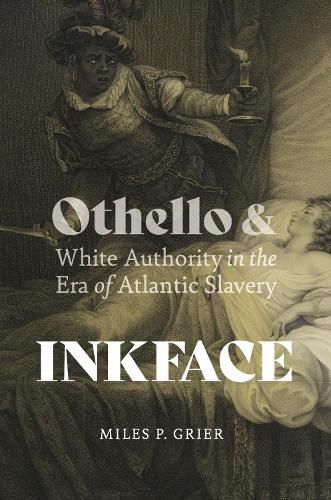Readings Newsletter
Become a Readings Member to make your shopping experience even easier.
Sign in or sign up for free!
You’re not far away from qualifying for FREE standard shipping within Australia
You’ve qualified for FREE standard shipping within Australia
The cart is loading…






In Inkface, Miles P. Grier traces productions of Shakespeare's Othello from seventeenth-century London to the Metropolitan Opera in twenty-first-century New York. Grier shows how the painted stage Moor and the wife whom he theatrically stains became necessary types, reduced to objects of interpretation for a presumed white male audience. In an era of booming print production, popular urban theater, and increasing rates of literacy, the metaphor of Black skin as a readable, transferable ink became essential to a fraternity of literate white men who, by treating an elastic category of marked people as reading material, were able to assert authority over interpretation and, by extension, over the state, the family, and commerce. Inkface examines that fraternity's reading of the world as well as the ways in which those excluded attempted to counteract it.
$9.00 standard shipping within Australia
FREE standard shipping within Australia for orders over $100.00
Express & International shipping calculated at checkout
In Inkface, Miles P. Grier traces productions of Shakespeare's Othello from seventeenth-century London to the Metropolitan Opera in twenty-first-century New York. Grier shows how the painted stage Moor and the wife whom he theatrically stains became necessary types, reduced to objects of interpretation for a presumed white male audience. In an era of booming print production, popular urban theater, and increasing rates of literacy, the metaphor of Black skin as a readable, transferable ink became essential to a fraternity of literate white men who, by treating an elastic category of marked people as reading material, were able to assert authority over interpretation and, by extension, over the state, the family, and commerce. Inkface examines that fraternity's reading of the world as well as the ways in which those excluded attempted to counteract it.